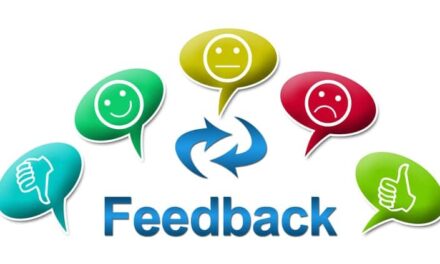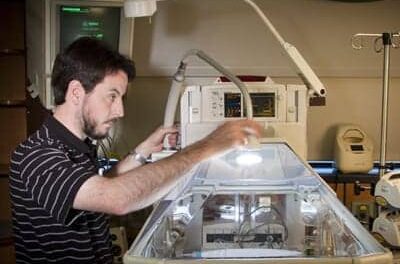By Aine Cryts
How does an off-roading enthusiast and self-professed foodie who wanted to be a neurosurgeon end up landing one of the biomed industry’s most coveted leadership awards? Ask Priyanka ”Priya” Upendra, AAMI’s 2022 HTM Leadership Award Winner.
With undergraduate- and graduate-level engineering degrees under her belt, Upendra currently serves as senior director of customer success at Sunnyvale, Calif.-based Internet of Medical Things (IoMT) cybersecurity risk management firm Asimily. It’s fair to describe her career path as circuitous.
“It might sound funny. But I wanted to go to medical school,” says Upendra. She confesses that, in her orthodox Indian family, a career as a physician wasn’t an option. In such a demanding profession, her family thought she’d have trouble finding a husband, she quips.
There were other options, of course. Engineering was one. Another was a legal career or a role as an architect or an interior designer. But once Upendra discovered biomedical engineering, she knew she had found her calling.
Getting a Graduate Degree
A graduate degree was a must. At first, Upendra set her sights on Stanford University. Ever the realist, she knew her family couldn’t afford the tuition. So, she got accepted to San Jose State University, took out student loans, and pursued a master’s in engineering degree with a focus on biomedical devices.
Throwing herself into student life and her biomed career path, Upendra took on an active role as a member of the Biomedical Engineering Society, where she led the Bay Area Biomedical Device Conference in 2012. That’s in addition to serving actively on the Senior Design Task Force where she led and mentored student project teams, while also filling her days mentoring undergraduate and graduate students.
And as fate would have it, she landed at Stanford University after all, as a research intern. There Upendra used her C and MATLAB programming skills to evaluate the effects of image compression algorithms on pediatric cardiac ultrasound images. Assessed and validated by a two-stage blind study with 40 cardiologists and radiologists, her research led to a software project that was performed in Bangalore, India.
She returned to Stanford for almost five years in a role as a clinical engineer/clinical technology analyst at Stanford Health Care and Stanford Children’s Health. This position establishing and leading the Biomedical Device Security Program for the health system was a perfect fit for her skill set. The program helped ensure patient safety for more than 40,000 medical devices. Upendra also continued to build her mentoring muscles working with three biomedical engineers on her team.
Next up was Salt Lake City, Utah, where she took on a compliance manager role at Intermountain Health for just shy of two years. Her days spent there were filled with creating a corporate compliance, quality, and risk program that addressed changing regulations within the environment of care portfolio for her team; that’s when she wasn’t focused on getting at the nuts and bolts of statutes and regulations regulated to Medicare, Medicaid, HIPAA, the HITECH Act, and other privacy requirements.
It was at Intermountain Healthcare that she became a translator, of sorts. That’s no easy feat, especially when Upendra was on the hook for translating complex regulatory text into language that was understandable while also identifying appropriate action steps for the clinical engineers to act on across the enterprise.
And then she headed back west into a role as quality and compliance program director at Banner Health in Phoenix. Included within her remit was developing an integrated compliance, quality, and risk program and operations for technology management. But Upendra also built and sustained relationships with medical staff, administration, facility colleagues, the construction office, and the safety office.
It turns out she was pretty good at vendor relationships, too. After being an Asimily customer for three years–when she got to “see the company from the ground up”–she took on her current role leading the company’s customer success team.
A few of Upendra’s accomplishments during her first year at Asimly include:
- Establishing the customer success team, where she oversaw all post-sale activities and tracks and manages renewals. She was also on the hook for consistently achieving revenue targets.
- Creating a customer success playbook that enables customer onboarding, product adoption, and the methodology to ensure a great customer experience.
- Driving continuous improvement in process, product, analytics, and platform implementation.
Leadership, Management and Mentorship
While her role in biomed keeps her focused, what really commands Upendra’s attention–and, indeed, her heart–is a deep discussion on leadership and management.
“With leadership, you may or may not have direct reports, but you need to have a very high level of empathy,” she says. “You have to create a strategic vision and empower your team. You have to support your team members to achieve goals as their leader. As a leader, you have to rely on a different set of traits and behaviors than your technical skills.”
Management isn’t the same, says Upendra.
“When you’re a manager, you have to deliver on the goals set for your team. You have to be very good at problem solving and managing the skills of your team members,” she says.
Upendra added: “A lot of people are good leaders but not good managers. If you’re a visionary leader, you may be very vague and not set goals, which means you’re going to have a very confused and dysfunctional team.”
Still, Upendra also relishes a conversation about mentorship, which is where “you’re delivering coaching that’s aligned with what your mentee expects to receive.”
Lessons Learned in the Field
Upendra is candid about her own lessons in management and leadership. She took on a supervisor role while she was working at Stanford. Two of the lessons she learned were:
- It’s hard managing direct reports who are also your friends. She lost friendships as a result.
- Understanding different personalities was another struggle she faced. “I wasn’t able to gauge a person’s skills,” she says.
Ultimately, Upendra asked her manager to move her into a role as an analyst where she was in charge of integration projects. Still, she honed her management chops by mentoring three graduate students she hired to work on cybersecurity projects.
“It’s how I learned what works best as a manager. I needed to learn how to be more diplomatic and to balance the needs of the organization with the skills and needs of my team,” says Upendra.
Upendra doesn’t think that she’s got leadership and management all figured out, but it fires up and sustains her curiosity about both disciplines. She’s currently pursuing a Doctor of Health Administration and Strategic Leadership, with an anticipated graduation date of May 2024.
The AAMI 2022 HTM Leadership Award
Asked how it feels to be named AAMI’s 2022 HTM Leadership Award Winner, Upendra confesses that she shies away from talking about herself. Instead, she seizes the opportunity to talk about her own mentors. “I learned a lot from my supervisors. I learned a lot about what to do and what not to do. That’s helped me shape my leadership, management, and mentorship approach,” says Upendra.
She also talks about the virtues of her team members. “I saw my [leadership award] nomination package. And it made me very emotional to see that my team members nominated me.”
According to AAMI, Upendra’s team members “regard her as an approachable, confident, trustworthy, and reliable leader that is forward-thinking and pushes her team to put [forth] their best efforts while recognizing talents, traits, and skill growth.”
In addition to serving as president of the American College of Clinical Engineering and a member of AAMI’s Technology Management Executive Council and Publications Editorial Board, Upendra simply describes herself as “grateful.”
Upendra Outside the Office
Upendra confesses that her two “naughty” dogs–mind you, she loves them–probably wouldn’t let her sleep in, but she’d love a lazy start to a Saturday or Sunday. After she got up, Upendra would love to feast on some Indian breakfast food, such as dhosas; they’re crispy and crepe-like and a popular street food in India. Then she would probably head to Home Depot or a dance class or listen to some Bollywood music. Off-roading with her husband in the desert near their home in Arizona would be an ideal way to spend time, she says. A perfect way to cap off her lazy weekend day: A good dinner and a fun night out.
Aine Cryts is a contributing writer for 24×7 Magazine. Questions and comments can be directed to chief editor Keri Forsythe-Stephens at [email protected].
Featured image: Priyanka ”Priya” Upendra off-roading with her husband in the desert is an ideal way for her to spend time off. Photo: Upendra





